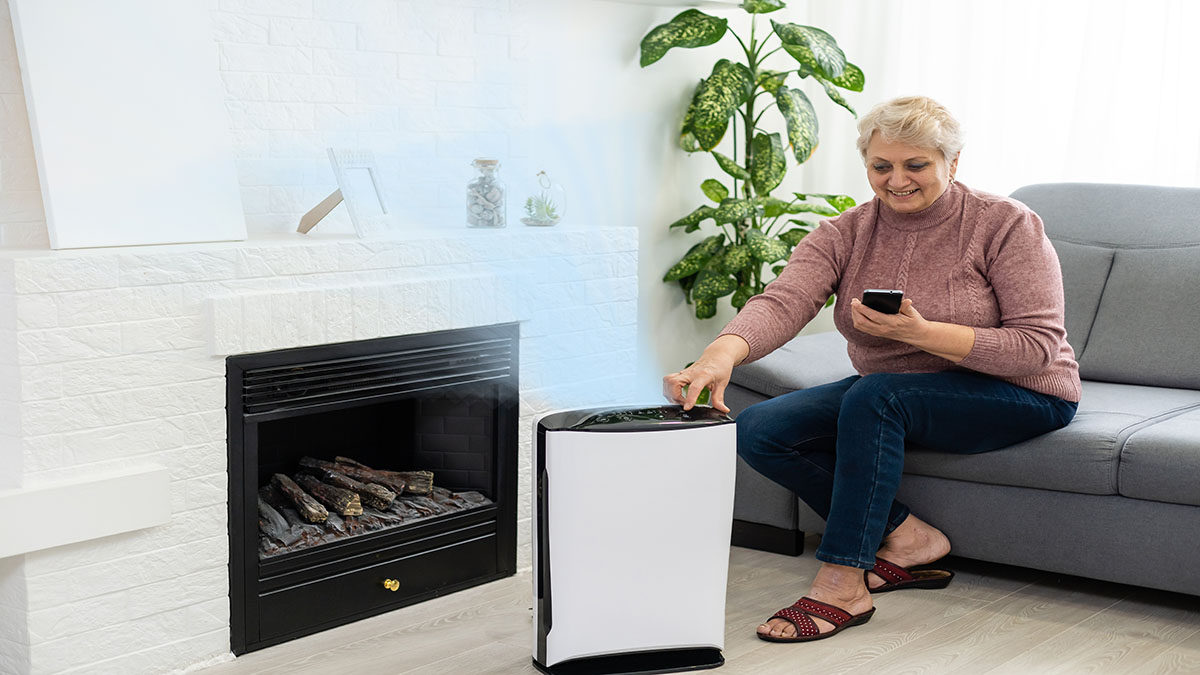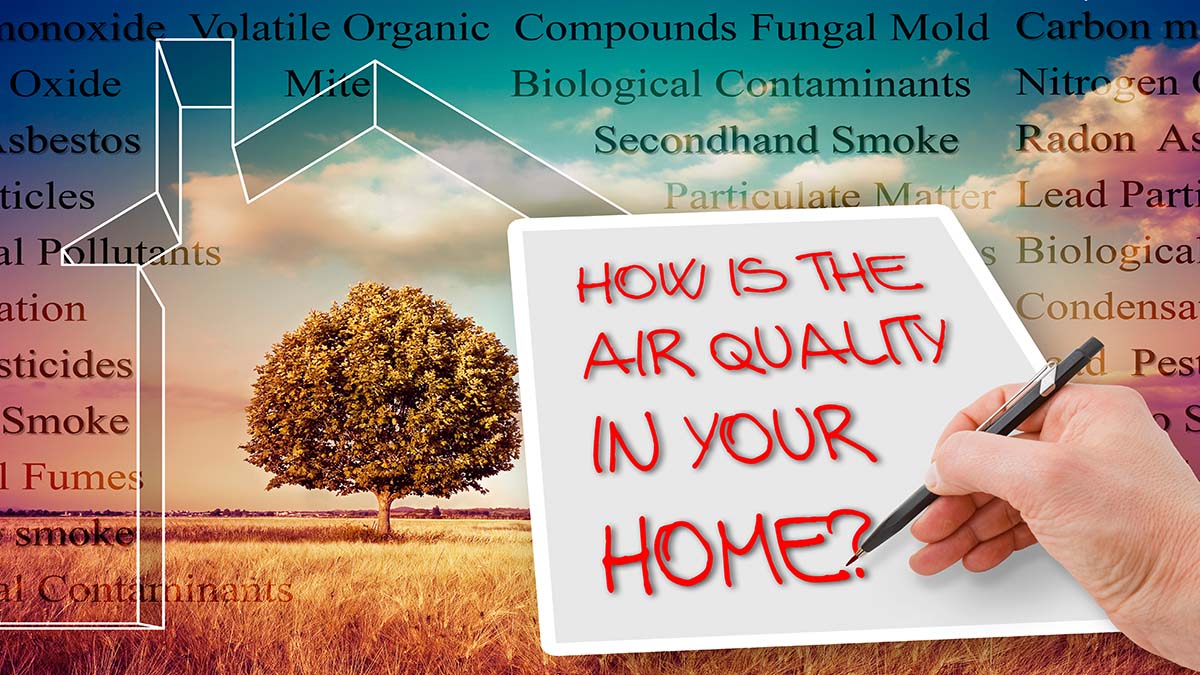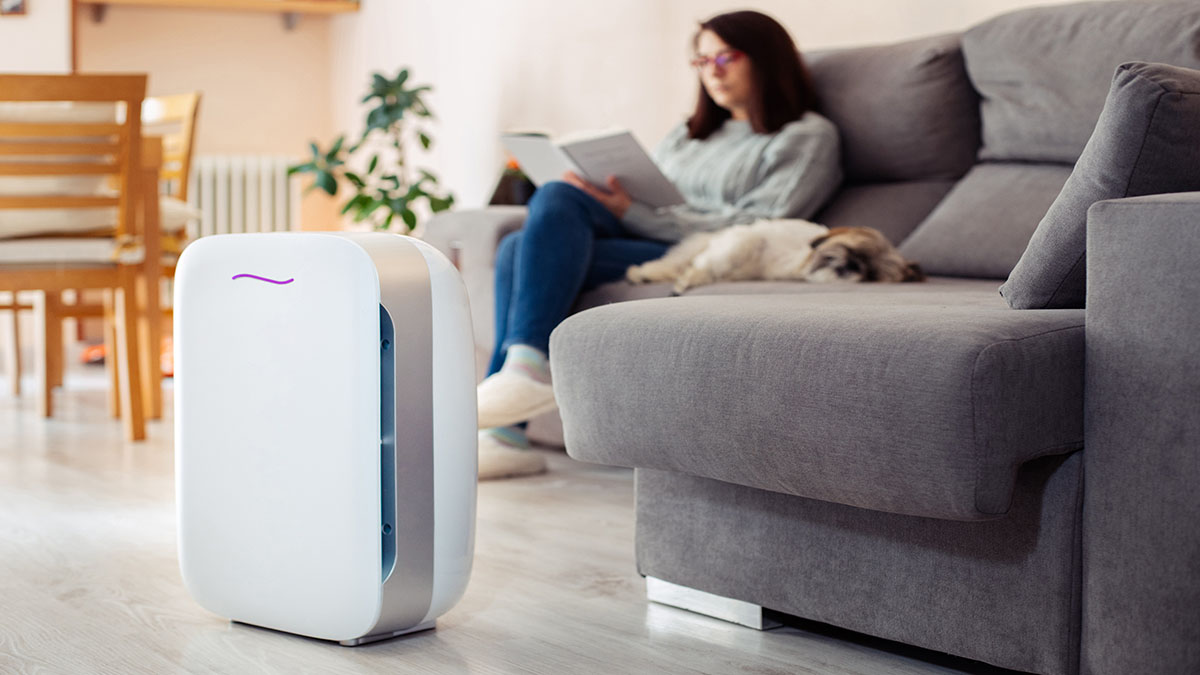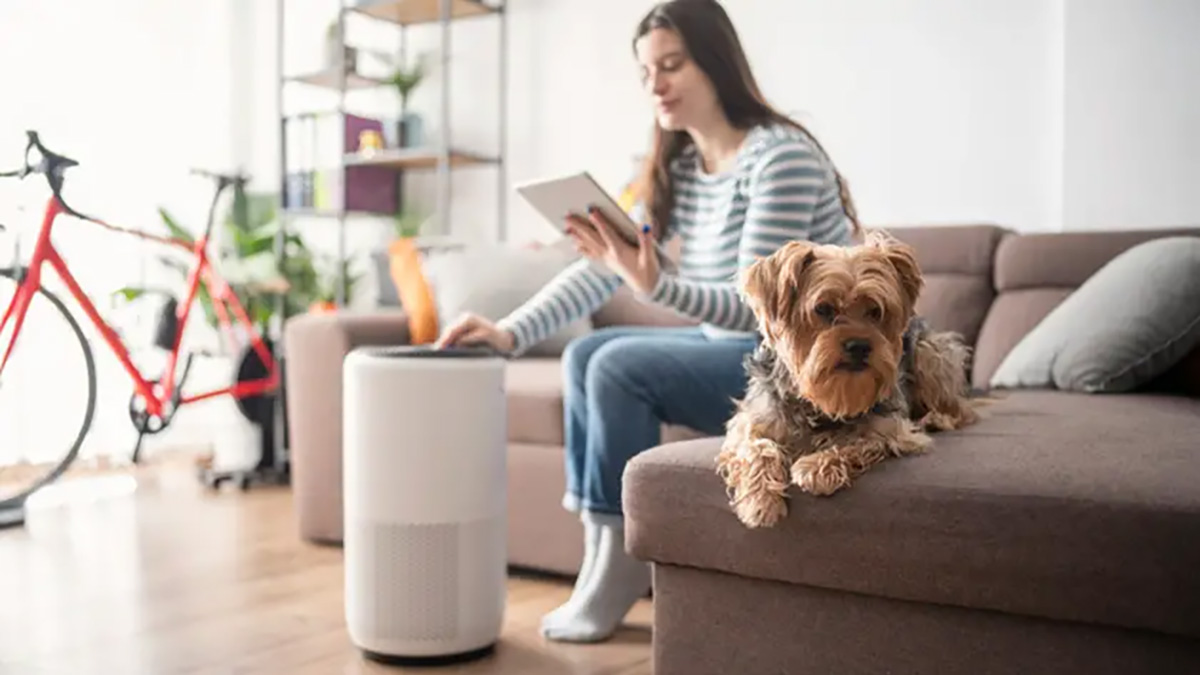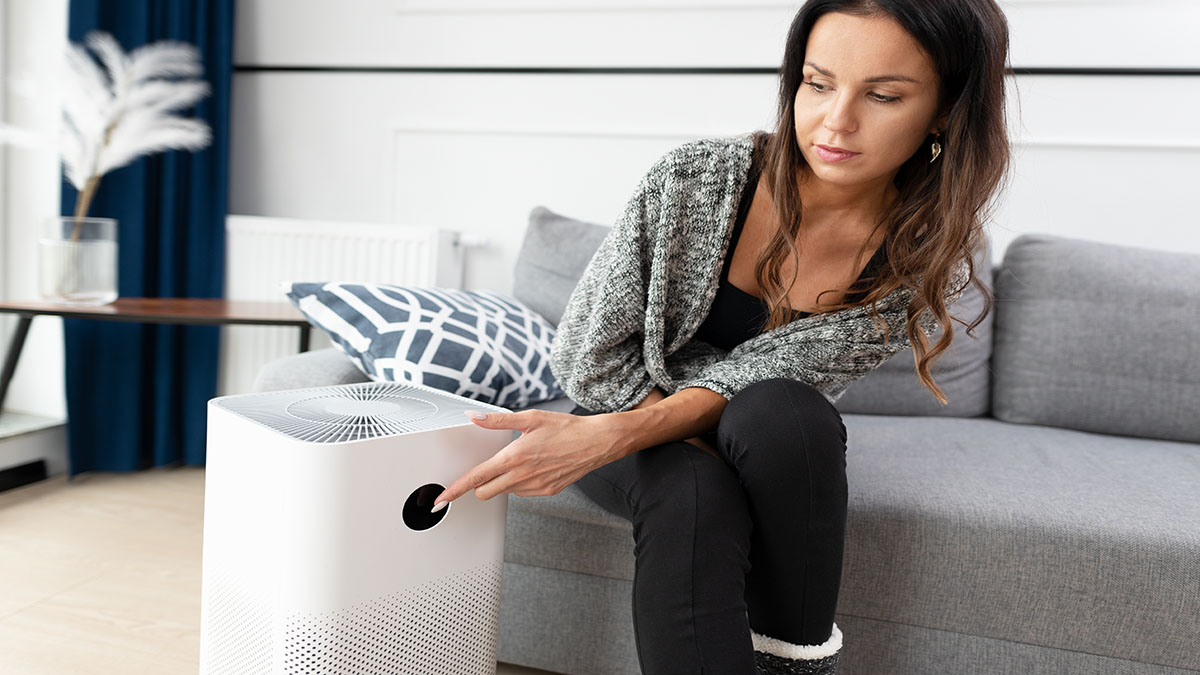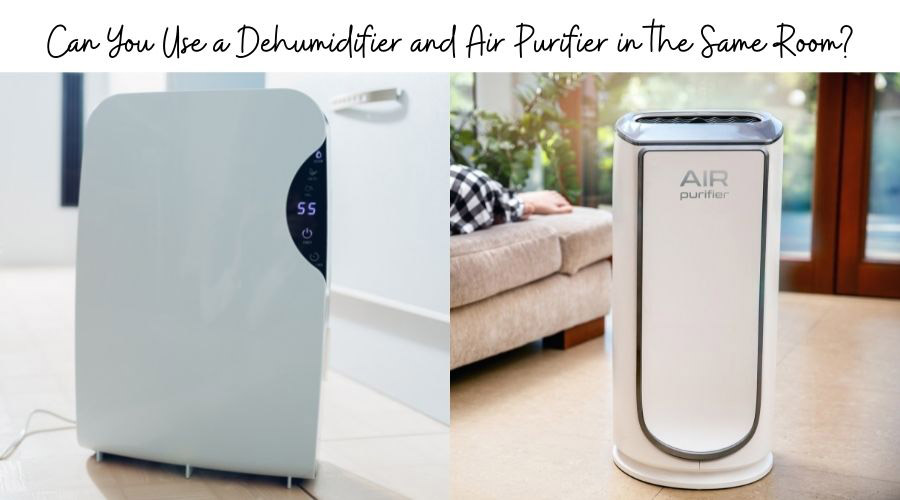
If you live in the coastal areas, you may need a dehumidifier in your house instead of in the mountains. Dump or dry air harms your health and can cause respiratory infections, allergic rhinitis, asthma, sore throat, and eye irritation.
You can use a dehumidifier and air purifier in the same room simultaneously. The working of an air purifier does not affect the working of a dehumidifier. Besides, both have distinct functions: a humidifier removes moisture in your house while an air purifier cleans the air.
Both would help kill and prevent mold, musty odors, and dust mites. For more understanding, let’s discuss below how these devices work.
This article will discuss whether you can use a dehumidifier and a purifier in the same room if you need both devices and if leaving the cleaner on all night is okay.
What is the Difference Between Dehumidifiers & Air Purifiers?
A dehumidifier and an air purifier are different devices used to perform other duties. A humidifier removes moisture, while an air purifier helps clean the air. These electrical appliances are excellent at eliminating dust mites, molds, and other microbes.
An air purifier cleans the air by removing contaminants. The device uses two components to perform its duties: a fan and a filter surface.
Air passes through the fan unit, where contaminants are trapped and removed on the filter, and clean air enters the room. Note that an air purifier does not add moisture to the atmosphere.
Conversely, a dehumidifier draws warm air currents into the coils through a fan. The heated air contracts as it passes through the refrigerated coils of the machine.
How Does a Dehumidifier & Air Purifier Work Together in the Same Room?
When put on, an air purifier eliminates dust, pollen, odors, pet dander, bacteria, and allergens from the house. It circulates fresh air through filters and traps airborne contaminants. Once it removes harmful substances in the air, it purifies and cleans it.
At the same time, the dehumidifier gets rid of excess moisture from the air. It prevents contaminants from living in the air and curbs microorganisms’ growth and spread. A humidifier allows you to breathe without worrying about microbes resulting in asthma and allergies.
A perfect example of using both a dehumidifier and an air purifier is when living in the basement. Typically, the basement is not hospitable due to high humidity levels and a musty smell. The foul odor could be a result of dampness, which can result in the growth of mold.
Using the humidifier and an air purifier would remove the high moisture levels and the bad smell. Usually, a humidifier will maintain the humidity levels in your room at 40%.
Also, if you have not run a dehumidifier in your room for a long time, you highly need both devices. While the dehumidifier removes the excess moisture, an air purifier will trap harmful pollutants, resulting in a musty smell of bacteria and mold spores.
Though you can get rid of the mold by thoroughly cleaning, it is not ideal. You will likely dislodge the spores and send them into the air. Using an air purifier will help prevent them from floating from one room to another.
However, note that using both appliances simultaneously in the same room would work best if the room has high moisture levels.
In some cases, you will not need the device. For example, it will be useless to use a dehumidifier in an un humid area. However, an air purifier is always essential as air will have to be cleaned continuously.
Factors to Consider Before Using an Air Purifier & Dehumidifier in the Same Room
- Power: Dehumidifiers and air purifiers consume a lot of energy. At the same time, both need a surge protector and different power circuits to run. In many cases, humidifiers and air purifiers are not connected to an extension, as they can blow things up.
- Level of humidity: Dehumidifiers and air purifiers can be best used together in serious damp and moisture problems.
- Water leaks: Leaking water in your room can affect the effectiveness of a dehumidifier. Hence, you must eliminate the underlying conditions before using a humidifier.
- Open windows & doors: To effectively function your humidifier, ensure the windows and doors are well closed.
Signs I Need a Dehumidifier
You may not know you need a humidifier as the air you breathe may seem normal. However, if you experience these signs, then you need a dehumidifier:
- There is muggy air in your house.
- There is leakage in your room after rainfall.
- If you or someone else starts having a respiratory illness, like coughing and runny nose.
- There is an increase in unwanted pets, such as spiders, moths, and silverfish.
- Your family member has an allergy to dust.
- Your family members begin experiencing prolonged allergy seasons every year.
- After moving to a new house, allergies start flairing up more often than they used to.
- You experience a persistent damp smell in a part of your house where you frequent and spend time.
- Your clothes have a damp or moldy smell even after freshly washing them.
Are There Risk Factors in Using Dehumidifiers?
Though a dehumidifier effectively removes excess moisture in the air and improves its quality, it can be hazardous.
Here are some risk factors using dehumidifiers can expose you to:
- Dehumidifiers remove moisture from the air, making it dry. You don’t need a dehumidifier if you live in a dry place and a high-altitude area. Dry air increases one’s susceptibility to pneumonia
- If you make your home dry by using a dehumidifier, you will likely increase your chances of getting skin and hair infections.
- Running a humidifier can make these illnesses persist for people with coughs or stuffy noses.
Do I Need a Dehumidifier if I Have an Air Purifier?
You may still need a dehumidifier if you have an air purifier. Each device has a distinct function that is important in your house.
A dehumidifier is essential in getting rid of humidity out of the air. Too much moisture can cause breathing complications for people with asthma and COPD.
An air purifier cleans the room’s air. It takes in air, which passes through a series of filters. People with breathing complications highly need an air purifier as breathing air with dust can worsen their condition.
However, though you need an air purifier all the time, a dehumidifier is not required. You only need a dehumidifier when the levels of moisture are high. For example, during summer, the humidity levels are typically very high.
The high humidity levels, if not controlled, can lead to the dampness or growth of mold. A dehumidifier would be of great use in removing the mold and making breathing easy.
Is It Okay to Leave Air Purifier on All Night?
It’s okay to leave the air purifier on all night. It’s good to leave it running day and night. It should always be on for a continuous and constant flow of purified and clean air.
Immediately you turn off your air purifier, it will stop filtering air, and harmful particles like dust, pet dander, pollen, bacteria, virus, and mold will begin to come back in less than two or four hours.
The only time you should leave your air purifier off is when there is a safety hazard like a damaged power cord, dirty filters, and the presence of an ozone generator that diffuses dangerous ozone.
Here are a few more benefits of leaving an air purifier on all the time:
1. Improves Sleep Quality
Typically human beings spend a third of their day sleeping. Hence, keeping your air purifier on will improve your sleep quality and overall health.
If you leave the purifier on, it will continuously eliminate airborne contaminants as you sleep. You will also be less risk of breathing allergens and wake up feeling good the following day.
2. Be Greeted With Fresh Air When You Leave it on When Not at Home
Yes, as said earlier, an air purifier should be left to run all the time, even when not at home. It ensures that airborne particulates are removed continuously from your house.
If you leave the air purifier on when not home, you will be greeted with clean, fresh air when you return to your house.
Also, whenever you turn off your air purifier, the air quality decreases. Hence, you cannot achieve quality air while running your air purifier for several hours daily.
Safety & Costs of Running an Air Purifier 24/7
Now that we know how beneficial it is to run air purifiers all the time, one concern you might have is safety and costs. Let’s address both of those.
It is entirely safe to run air purifiers all the time, especially since they are designed to run 24/7. You don’t have to worry about overheating, breaking down, or releasing dangerous by-products. These devices are listed with safety compliance and are CARB certified as ozone-free.
Though an air purifier is a high-power consumer, it is not as high as other home appliances. Some models or air purifiers have a power consumption rate equivalent to a light bulb.
So, running it 24 hours would be almost insignificant to your electric bills.
However, some models of air purifiers may consume a lot of power if the concentration of contaminants in the air is high.
Hence when purchasing an air purifier, choose one that increases the speed fan instead of power consumption once the pollutant concentration in the air rises.
How Do I Get the Most of My Air Purifier?
You need to ensure nothing obstructs the air purifier to get the most out of it. Here are a few things you can do for air that’s fresher and cleaner:
- Ensure the filters are clean: A dirty filter is ineffective in cleaning the air because of its many particles. Also, depending on the lifespan of your air purifier filter, it is good to replace it to improve the effectiveness of your air purifier.
- Close the windows and doors when the air purifier is running: Closing the windows and doors when the air purifier is running helps reduce the number of irritants flowing in. It also makes the air purifier hard to clean as unfiltered air comes in and clean air goes out at high speed.
- Buy a good-quality air purifier: No matter how clean your filters are, a poor-quality air purifier will not function as expected. This leads us to the next part of this article. What’s the best air purifier to buy?



